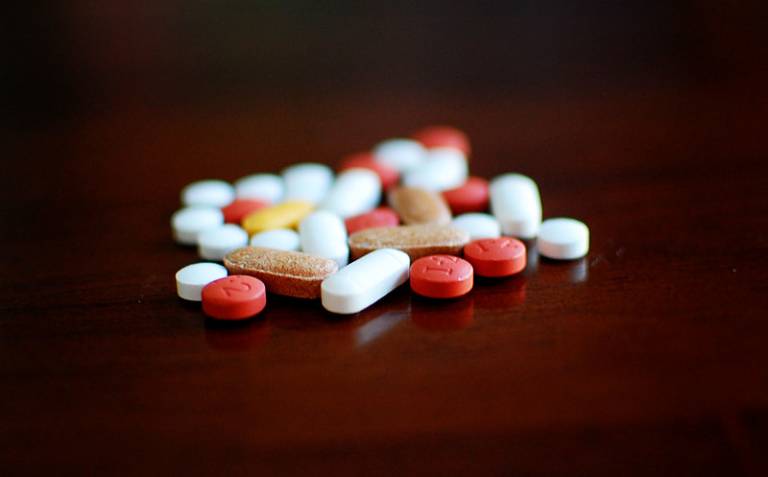UCL IBIL event debates how best to incentivise 'Medicines for the Many'
29 November 2019
Patents v Open Innovation: Incentivising ‘Medicines for the Many' was the theme of this year's annual UCL IBIL innovation seminar.

Image credit: Jamie from Birmingham, AL, USA, CC BY 2.0, via Wikimedia Commons
How do we devise a suitable incentive scheme for the development of new pharmaceuticals and innovative health treatments? This was the subject under debate at an event organised earlier this week by UCL Laws’ Institute for Brand and Innovation Law (IBIL). Traditionally, this has been the role of the patent system, but increasingly, claims are made that this focusses R&D efforts in the direction of greatest profits, rather than towards those areas of greatest public need. Patents – it is said – by granting exclusive rights to one party, encourage the antithesis of open, collaborative research and render many new drugs unaffordable despite rising patient need.
While some advocate patent pools to ensure access to essential medicines or proffer prizes as a partial solution, others propose a Health Impact Fund. The topic has already become a live issue in the forthcoming election. In September, the UK Labour Party launched its ‘Medicines for the Many' policy document, pledging to ‘break patents’ by dusting off compulsory licensing provisions and making the very latest drugs available on the NHS via a public-owned generics company. Meanwhile, a recent NHS Confederation report suggests that the real price of Boris Johnson’s much touted post-Brexit trade deal with the USA is £billions on nation’s drugs bill.
In its annual Innovation Lecture, IBIL convened a distinguished panel to identify the problems of the current patent-based system and to investigate whether open innovation is the potential solution.
Dr Galit Gonen-Cohen, Head of Intellectual Property Law at Novartis, highlighted increasing levels of cooperation between ‘big pharma’ companies, academia and other research institutes. Using gene therapy and ‘Evelyn’s Story’ as a potent example, she explained that tackling many current global health issues required such complex solutions, that it could not be done by one organisation alone. Acknowledging that the patent system was far from perfect, she believes that it remained at the heart of these collaborations because it provides a legal framework which enables knowledge and control to be shared, and assists markets to value entitlements in a transparent way.
Professor Matthew Todd, Professor of Drug Discovery at UCL School of Pharmacy discussed his work on open source research, in which all data and ideas are ‘open’ and shared with all in real time. This can provide an answer when market-based solutions fail. Professor Todd likened new antibiotics to fire extinguishers: both serve a well-recognised societal need, yet there is little commercial impetus to invest in a product which will only be used as an emergency ‘last resort’.
Professor Adrian Towse, Visiting Professor at the LSE and Director Emeritus of the Office of Health Economics. He identified the need to separate demand side failures (such as those which Professor Todd had identified) with R&D efficiency issues, and he did not necessarily see patent rights as a barrier to tackling either. Reward should be de-linked from volume, meaning prices should not be set based upon effort, but on resultant value. Optimal price levels could be set at different levels in different market if each payer unilaterally sets an incremental cost effectiveness threshold based on its own citizens’ willingness to pay for health and health-related gain.
At the end, the Chair, The Hon. Mr Justice Birss, noted: ‘It was a great discussion and there is so much more to these issues than we were able to cover. I hope there might be another occasion to continue the conversation. These are important matters.’
Find out more
- Find out more about the seminar on the event page
- Watch a recording of the event on the UCL Laws YouTube channel
- Review the panel's presentation slides
 Close
Close

